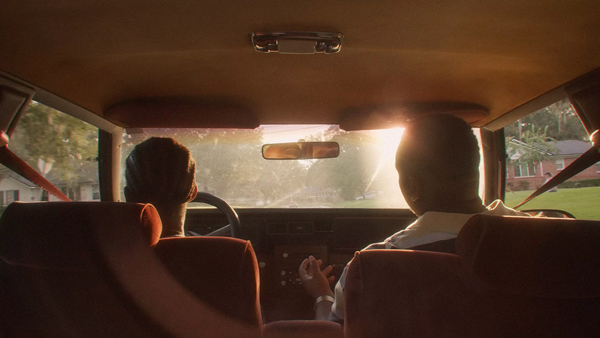Eye of the Norm: Simpson Looks at Coastal Coasting with Minimalist, Passive POV
There is a new breed of emerging American indie filmmakers who are Sunshine State-centric, highlighting the unique diversity of its communities and the complexities of its geography. In her feature debut, Euro-American filmmaker Alexandra Simpson captures this essence with an observational style — it’s a little reminiscent of Tim Sutton’s early work. In contrast to typical disaster films (even of the micro-budgeted indie sort), Simpson’s No Sleep Till presents a quiet, sometimes docu cinema where there’s no looming catastrophe or fear porn-driven narrative. Instead, the film portrays a storm as it truly feels—an inevitable part of life—where characters, often with no interconnected stories, simply exist in the moment, embracing the fluidity of time. While the film may lack a sense of immediacy or heightened emotions in its characters, there are still moments to appreciate in the subtly playful vibe that permeates the narrative.

Set against the backdrop of Atlantic Beach, Florida—a place we can imagine as a frequent target in nature’s path—the film captures the agitated atmosphere — the airwaves is one source of chatter – not unlike how Carson Lund’s small-town portrait Eephus inserts its adverts. A mandatory evacuation is in effect, but this directive becomes more pronounced as the film enters its final act. As tourists leave, jobs are lost and homes are boarded up, a handful of individuals feel an inexplicable urge to stay behind. It might be economics or risk assessment, but among them are, a local teenager who passes her time in the pool, socializing with intent or biking around town, two long-time friends who choose to ignore the danger in pursuit of their dream gig (though they take jabs at each other, their friendship runs deep), and a dedicated storm chaser who sees this as an opportunity. Plus there is a Magic Beach Hotel permanent resident whose best years are behind her.

Simpson captures the pre-storm atmosphere with a dreamy, almost surreal quality, predominantly set in the nocturnal hours, where the occasional neon glow-stick artificial lights slices through the darkness. Lensed by Sylvain Marco Froidevaux, the scenes are imbued with an eerie stillness—spaces typically bustling with life are now desolate or taken over by encroaching wildlife. The characters, largely conversing in everyday, unremarkable dialogue, embody the monotony of choosing to remain motionless, as if the impending storm has suspended time and stripped away urgency. Guided with a diegetic, natural soundscape, there is a small magnetic pull felt in No Sleep Till and the detached camera also adds the occasional alluring spark, but it’s hard to feel as transfixed as those who are waiting without knowing.
Reviewed on September 2nd at the 2024 Venice Film Festival (81st edition) – International Critics’ Week. 93 Minutes.
★★½/☆☆☆☆☆


